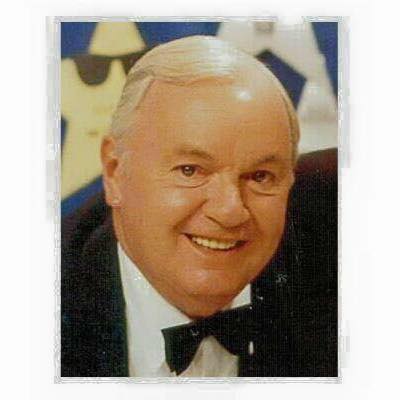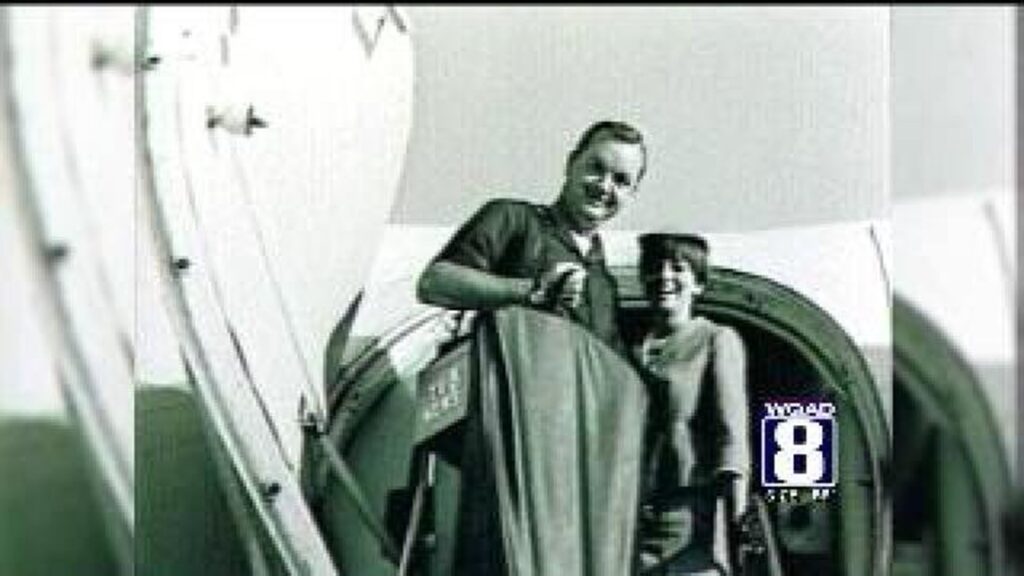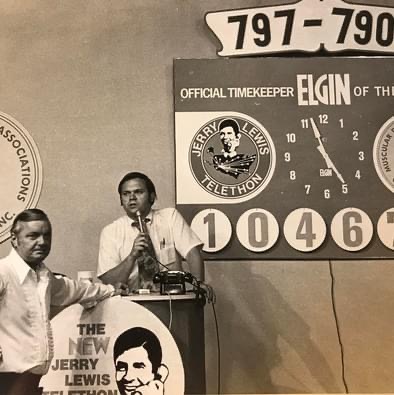
In the Quad Cities if you say the name Jim King, most long time TV viewers will immediately know who you’re talking about even 25 years after his death.
Jim was a news anchor and reporter at WQAD-TV for almost four decades. He was one of the station’s first employees when it went on the air in 1963, and the station’s first sports director. Jim had been working as sports director at KETV in Omaha after a career in the Air Force where he got his start with Armed Forces Radio.
“Oddly enough, the ironic part about that was that my father really didn’t know anything about sports, but he could read scores, and he could read stories,” his son Kris Ketz said in an interview for the Archives of Iowa Broadcasting Oral History Project. After a year and a half as sports director at WQAD, management moved him to the news anchor position.
Watch the full interview along with funeral eulogies and a 1999 video tribute
Jim King’s real last name is Ketz, but KETV management thought Ketz was too ethnic, so they made him change it, Kris said. It was an air name that he continued to use throughout his career.

Jim covered a number of big stories, including historic Mississippi River floods in the Quad Cities in 1965 and 1993. Probably the stories he was best known for though, Kris said, were in 1966 and 1967 from the Vietnam war. He and a photographer went to Vietnam to talk to local service men and women who were involved in the war.
“That certainly couldn’t have been cheap. It wouldn’t be cheap today,” Kris said. “But the fact that a television station the size of WQAD committed to a story like that, I think really said a lot about the people who were in charge of WQAD at the time.
That second trip to Viet Nam almost ended in tragedy. Jim and a newspaper reporter from the Orlando Sentinel got a “little bit too close to a Viet Cong mortar that hit just right outside Da Nang where there was an enormous US military presence,” Kris said. Jim was hurt and stayed in a hospital for a month.
“I’ll never forget that moment in the living room at the house that I grew up in, in Moline, when the day we got a call and just how close my dad came to becoming a casualty,” Kris said.
In 1983, Jim made a similar trip to Beirut, Lebanon after two suicide bombers detonated truck bombs at the U.S. Marine barracks killing 241 American servicemen. WQAD photographer Lane Michaelsen accompanied Jim to interview surviving soldiers from the Quad Cities area.
Jim’s Viet Nam experience came in handy. “We had to bribe our way past Customs, but it didn’t phase Kinger at all,” Michaelsen said. (Jim was affectionately known as Kinger by news staffers.)
Another time during their 10-day trip, the two covered the kidnapping of another American reporter. “The network wanted our video because somehow Kinger got us into places they had never been,” Michaelsen said.
Muscular Dystrophy Telethon host
Besides his reporting and anchoring, Jim was well known for his work with the Muscular Dystrophy Association (MDA). He raised thousands of dollars for MDA over the years hosting the local portion of the Jerry Lewis Labor Day Telethon.

Hosting the telethon was the most visible part of Jim’s work with MDA, but it was just part of an ongoing effort. During the year Jim reported stories about children with Muscular Dystrophy that ran in newscasts. He also spent time at the MDA camp each summer.
Kris said it was more than just an assignment for Jim. “He got close to these people and told those stories and really thought that we needed to do something about this. And we needed to help find a cure. So his devotion to this particular effort was, my goodness, second to none.”
Whether it was the telethon, his anchoring, or his reporting, there was one thing Kris said that set his dad apart from many other journalists. “He was just so authentic. He was genuine. There was nothing ever fake about what he did and how he did it. And that’s not something that you can develop. It’s either there or it’s not.”
Jim King received many awards during his career. He is a Gold Circle member of the National Academy of Arts and Sciences Midwest region. It’s the highest honor given to a broadcast journalist by the Academy. He was inducted posthumously in 2009.
Special thanks to Paul Yeager, Randy Schumacher, and Kay Grigsby for assistance with this project.